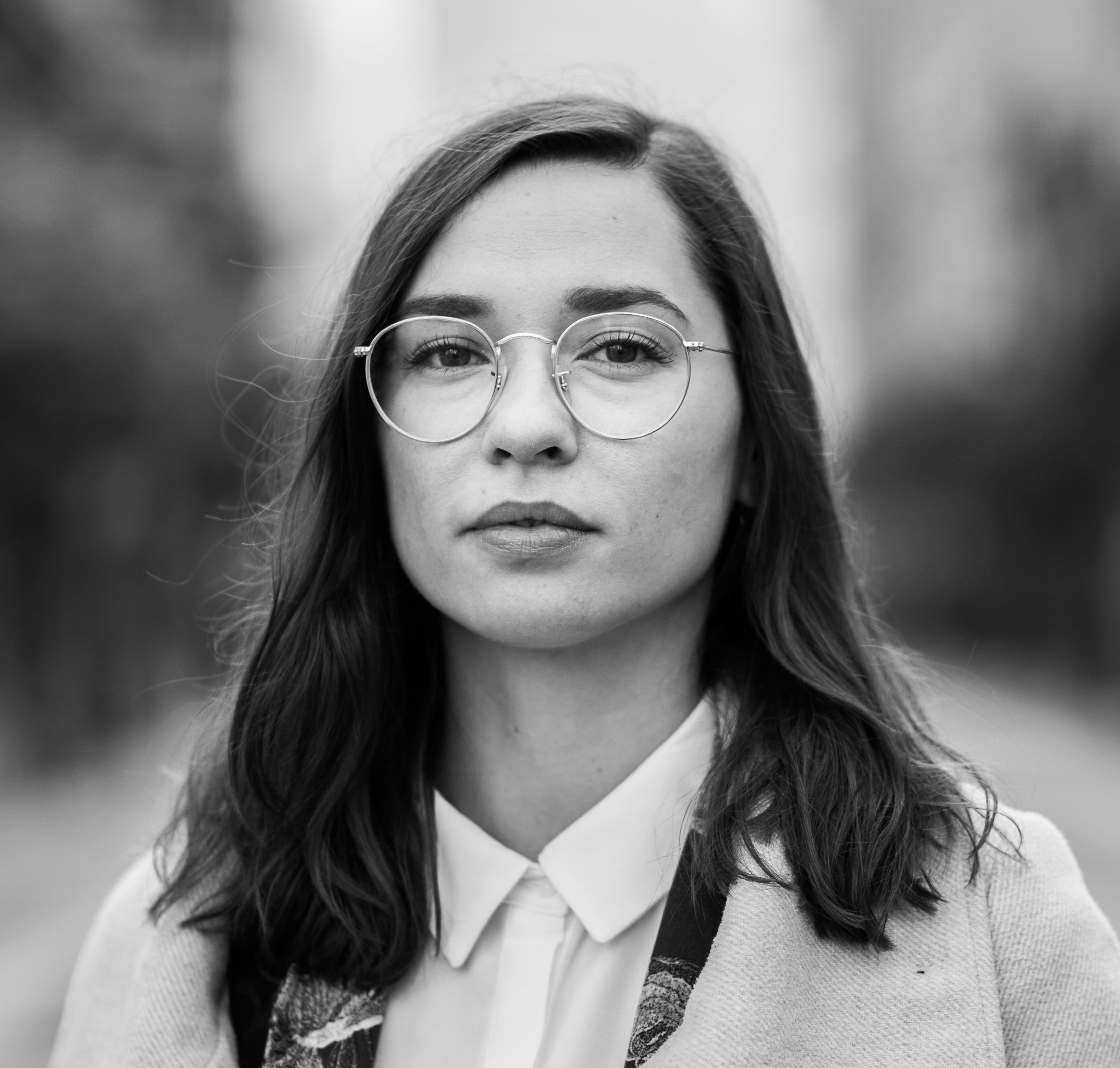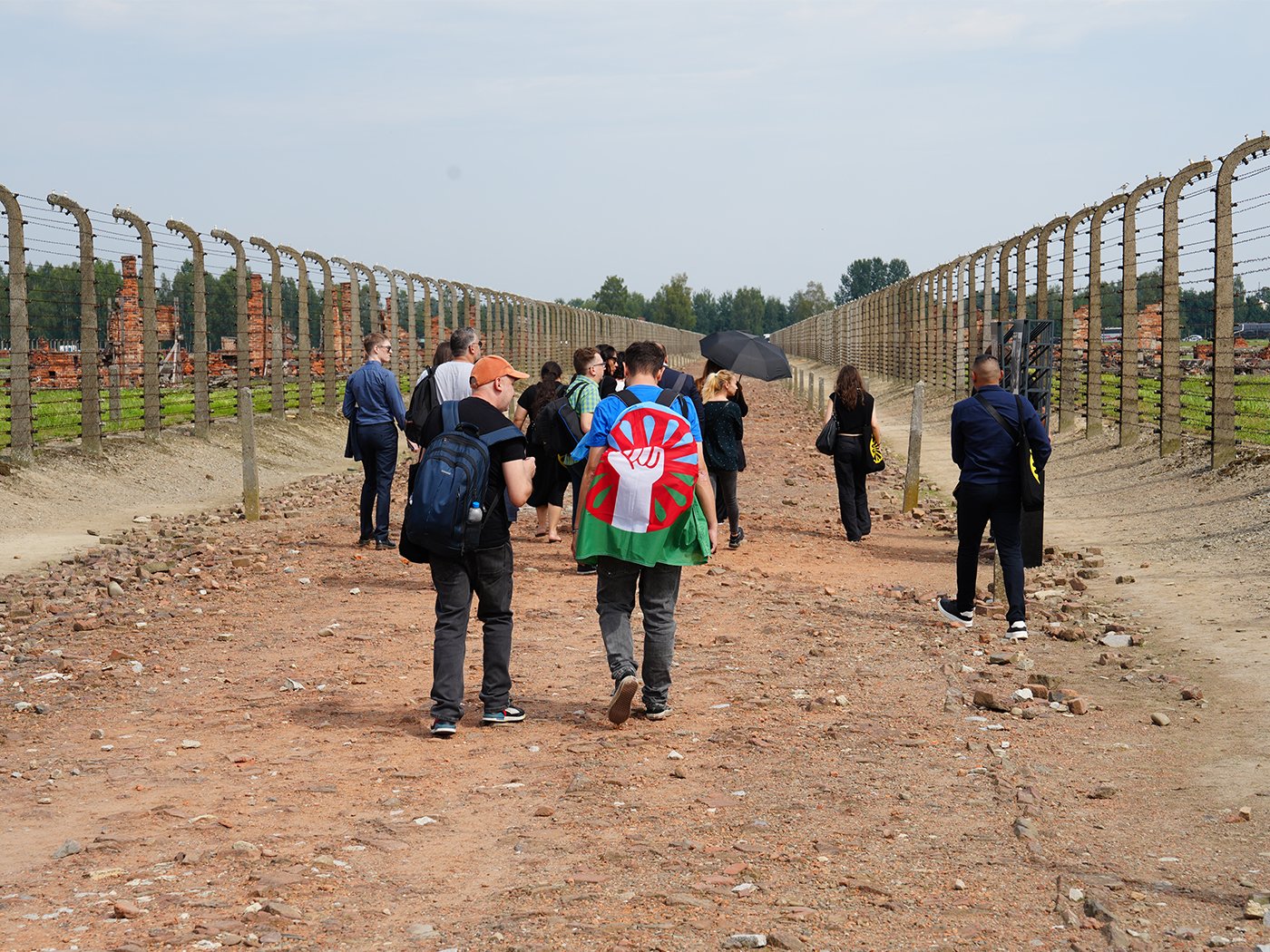Commemorating this history is essential not only for us, the Roma. It is also vital for the future of Europe.
For most, July is a time of holiday planning, lazy afternoons and the dolce far niente of summer. But for me, it has always carried a different weight. As 2 August approaches—European Roma Holocaust Memorial Day—I feel a deep sense of reflection, grief and duty.
On the night of 2 August 1944, over 4,300 Roma men, women and children—prisoners of the so-called “Gypsy family camp” (Zigeunerfamilienlager) at Auschwitz-Birkenau—were murdered in the gas chambers. It was the liquidation of an entire camp section and a symbol of the Nazis’ intent to wipe out our people entirely. This date marks the peak of a genocide that had begun even before World War II—one that remains largely forgotten or ignored by the rest of the world. By the end of the war, it is estimated that at least 500,000 Roma were murdered—possibly as much as half of the entire Roma population in Europe at the time.
I was born and raised in Krakow, just 60 kilometres from Auschwitz. That proximity shaped my life in ways I didn’t fully grasp as a child. In the 1990s, my father, Andrzej Mirga, helped launch the first international commemorations at Auschwitz. He fought for what at the time felt almost revolutionary: a worthy place for Roma victims among the recognised narratives of the Holocaust. His insistence that the genocide of our people deserved space, truth and dignity inspired my own path.
In our family, remembrance was never abstract. My grandmother survived round-ups. My grandfather was liberated from a German concentration camp. And in the Auschwitz-Birkenau State Museum, there is a photograph of a Roma woman named Anna Mirga. “Mirga” is a common name among Bergitka Roma, and while the name is the only thing I share with her, I often wonder about her story. I do not know it—but her name is a haunting reminder that it could have been mine.
As a young adult, I joined this legacy of remembrance. In 2003, together with other Roma students, including my cousins Małgorzata, Karolina and Elżbieta, we founded the Roma Educational Association “Harangos”. During my years in Barcelona, where I studied and worked with Roma organisations, remembrance of the Roma Holocaust was a major part of my work. Later, I became involved in Dikh he na bister (DHNB, “Look and don’t forget”), the Roma Genocide Remembrance Initiative led by the ternYpe International Roma Youth Network. Thanks to DHNB, every year hundreds of young Roma and non-Roma gather in Krakow and Auschwitz not only to mourn, but to learn, organise and affirm our presence in European history. For this generation of Roma youth, remembering drives action rather than a retreat into victimhood.
I’ve stood at Birkenau on 2 August many times. The ceremonies follow the same rhythm: greetings from Roma organisers, a powerful testimony from a survivor and a string of speeches from government officials. Sure, their presence matters. But too often their words ring hollow. While officials honour the victims, racism against Roma—including through state policy—continues across Europe.
What’s missing isn’t only action against racism but an honest telling of our history. Too often, Roma are remembered solely as passive victims. But history shows otherwise. On 16 May 1944, Roma prisoners at Auschwitz armed themselves with tools and debris to resist SS guards. This act of defiance—one of the very few documented uprisings in Nazi concentration camps—delayed their murder by nearly three months. It was an extraordinary moment, but not an isolated one; during World War II, Roma resisted as soldiers, partisans and saboteurs as well as through acts of care, disobedience and solidarity. That same spirit of resistance defines how we mark 2 August—not only as a day of mourning but as a call to fight for our future.
This year, the European Roma Institute for Arts and Culture (ERIAC), where I serve as Deputy Director, is hosting a two-day training for education professionals, in partnership with the Council of Europe. Our goal is to equip public authorities with the tools to embed the Roma Holocaust into national curricula. The programme includes an online session and an in-person visit to Krakow and Auschwitz, culminating in participation in the official commemoration.
This is because, while expanding historical knowledge is crucial, it rarely translates into lasting awareness. School textbooks across Europe remain largely silent about Roma history. Many Roma Holocaust sites remain unmarked and profaned, and few European countries acknowledge 2 August as a national day of remembrance.
Commemorating this history is essential not only for us, the Roma. It is also vital for the future of Europe. If we take seriously the promise of democracy and freedom, we must confront the ideologies that made the Holocaust possible—and that are reappearing across the continent today. As far-right and neo-Nazi parties gain ground and hate speech returns to political discourse, remembering 2 August is not just about the past. It is a moral test for the present.
That, to me, is the essence of 2 August. I carry that day not only as a daughter, a scholar or a Roma woman—but as someone committed to ensuring that the legacy of resistance and survival lives on, and that the silence around our suffering is finally broken.

Anna Mirga-Kruszelnicka
Deputy Director, European Roma Institute for Arts and Culture
The latest

Serbia Must Amend Missing Persons Alert System to Protect Vulnerable Adults

Constitutional Review of the Šutar Law Confirms Serious Rule-of-Law Concerns

Europe’s Growth Depends on Roma Talent
Browse by category
Campaigns
Events
Facts
Press
Voices
For media inquiries:
[email protected]Sign up here so you don’t miss out on campaign updates, upcoming events and other news from the Roma Foundation for Europe and our network.
Sign up for our newsletter